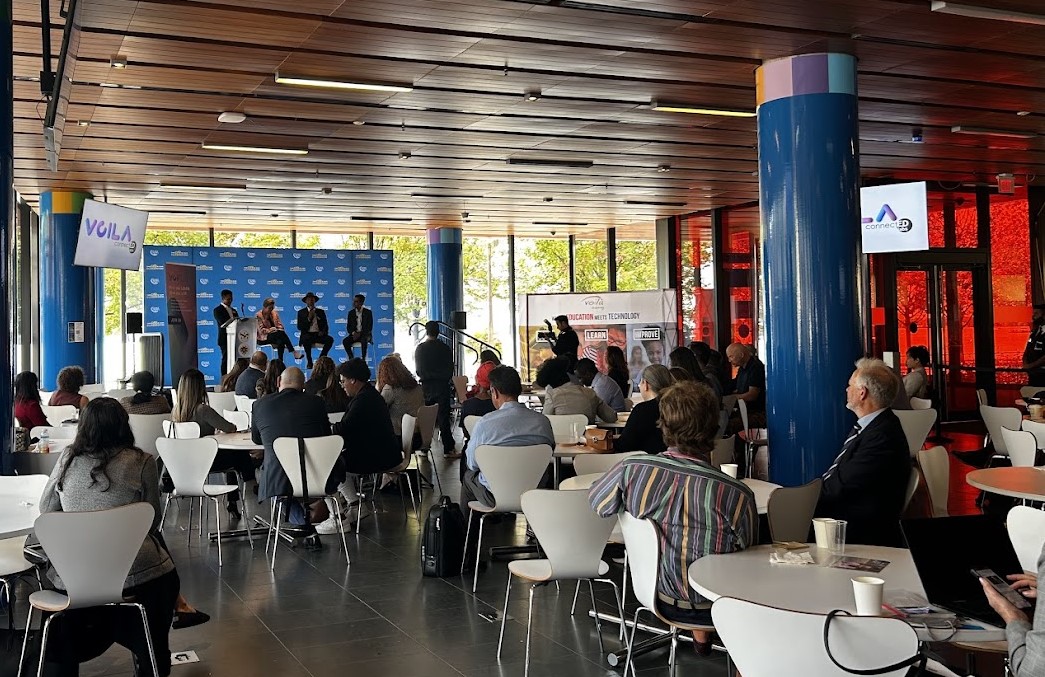A few weeks ago, , Hosni “Hoss” Zaouali sat on a stage surrounded by people in a glass-walled building on the shores of Lake Ontario. Overheard conversations signalled that attendees had backgrounds in education, technology, government, and many other fields.
Zaouali, CEO of Toronto-based educational technology firms Voila Learning and ConnectED Labs, was at the Waterfront Campus of George Brown College to discuss a government grant supporting his companies’ new Metaverse programming. The new program intends to use the technology for a range of topics, from university education to human resources services, \immigration and workforce development,.
Speaking to Excalibur after the event, Zaouali explained the motivation behind his project.
“I can tell you one thing: the Silicon Valley, it’s a beast on its own,” he says, referring to the Californian region known for its innovative technological developments and competitive spirit. However, he chose a different approach to start his endeavours.
“I do believe that this [approach] where a company raises a huge amount of money and starts just basically eating everything around, doesn’t work in our ecosystem in Canada,” he explains. In particular, education requires “a lot of investments, a lot of time to really make sure that we’re not making any mistakes and to move the needle forward.”
“But these are the billion-dollar industries as well,” he reassures, suggesting that private enterprises can still turn a profit while working in a more socially prudent way.
Many have used videoconference platforms like Zoom for lectures or tutoring, but what separates Metaverse technology from the former is also what allows it to more effectively teach “the skills of tomorrow,” says Zaouali.
“We help these students learn from each other and collaborate and bounce ideas from each other and work together,” he explains. “We want to make sure that people are able to interact with each other. That is why using avatars for students and teachers will definitely make a massive difference.”
When asked about how a university community like York’s could benefit from his Metaverse technology, Zaouali shares that it can allow international students to participate from their home country, while still experiencing some of the benefits of in-person collaboration.
He calls this a “3D immersive campus,” and believes it represents a significant future change for universities. Plus, for students in developing countries, “at the end of the day, they’re using the skills acquired to rebuild their home country.”
For anyone interested in learning more about this project or to partner with Voila Learning and ConnectED Labs, visit https://voilalearning.com/en/ or https://connectedlabs.tech/.


